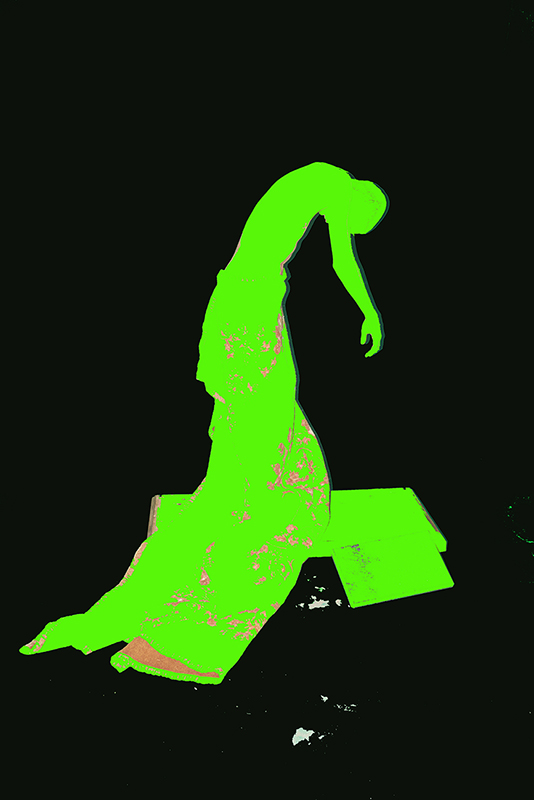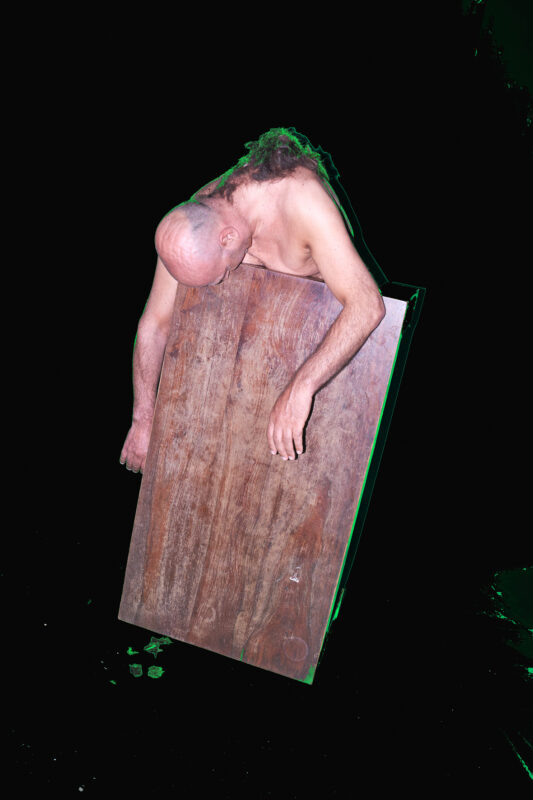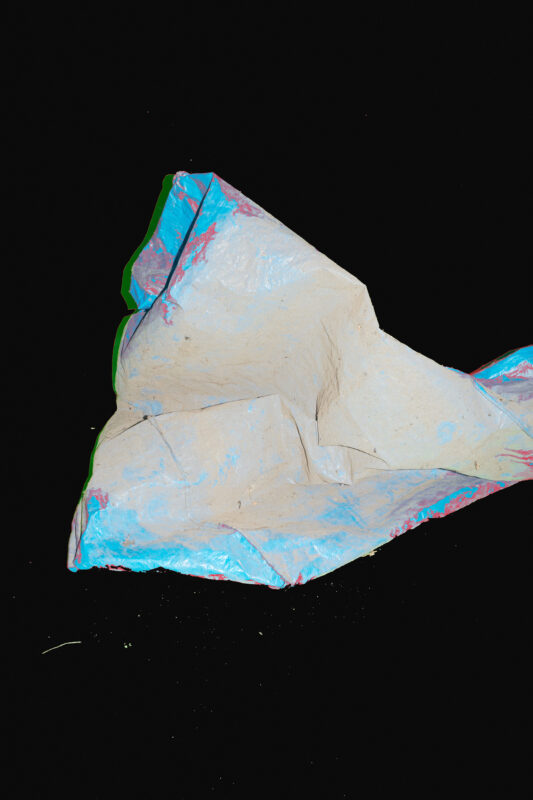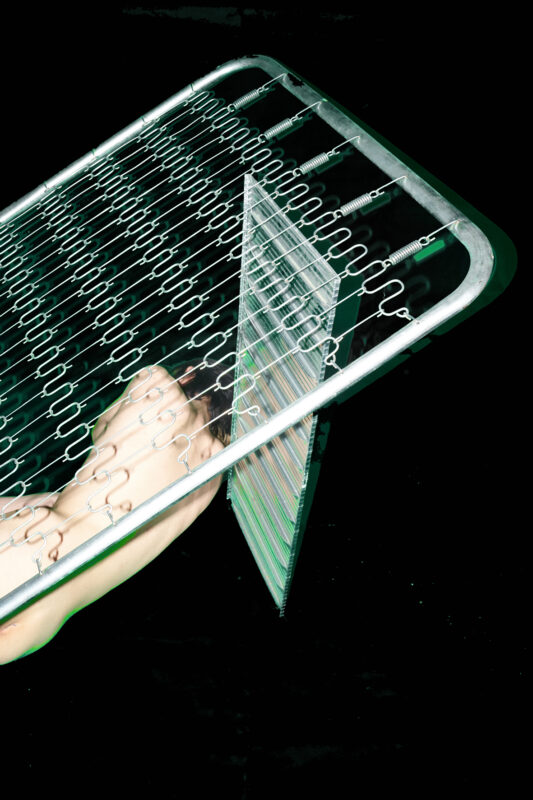FuturDome is pleased to present The Vacuum Decay, a solo show by Marco Pietracupa (Brixen, IT, 1967), curated by Atto Belloli Ardessi.
The Vacuum Decay is a hypothetical astrophysical condition implying a self-destruction of the universe. FuturDome displays a series of images created by Pietracupa during the first lockdown in March 2020. The barn of his house, forcibly converted into a photographic set, transforms into a cosmogonic observatory where the decay of the void functions as the activator for a cycle of portraits of his family and close relatives with whom he was ineluctably living with. The faceless bodies, shot before a cinematic green screen, lie waiting for the ultimate event, decaying as a generative mass of the vacuum that will annihilate them.
In physics, we define as false vacuum a theoretical, apparently stable, region of space. It can be imagined as a bubble that could potentially suddenly collapse. The walls enclosing the false vacuum, kept together by the surface tension, can expand through the process of tunneling, borrowing energy from the universe. The decay of the bubble’s energy to an inferior level would entail a change in the Physics’ laws regulating the objects contained within the space. It would trigger a new status of being where everything could be destroyed or stop existing. A variation of the same concept based on quantum mechanics, called Many-Worlds Interpretation, suggests that some worlds could survive while others would die.
Pietracupa’s images, alternating inert bodies and now useless objects agglomerations, represent the actual realization of the multiple statuses of being. They are emancipation of the macabre dreading the instability of our vacuum. Bodies and things are abducted from the logic of disappearance and forced to a grueling eve. Although in different schools of religious thought the body represents an element only suitable for mortification through often repulsive and painful experiences, in The Vacuum Decay it rests in the space and persists in it only as an object traveling across it and passing through it. Being aware of the multiple times you have lived your youth, accounts for Pietracupa as an extension of your dismay.
The problem we are forced to confront is double-sided. It entails increasing to its maximum extension, within the human lifespan, the time to authenticate oneself.
The use of a green screen appears as a device allowing the annoying effect of fringing or colour spill (an imperfect crop of the margins of a subject) to creep in between the images. The technique, developed to insert the action in scenes and landscapes filmed somewhere else recreating an objective reality, embodies for the artist the unprovability of the external world. According to Pietracupa, reality is a false entity: it does not actually exist and is only presumed in order to be able to deduce the truth. This accidental irruption is the uncanny element interrupting the train of thought. It is the object that always takes the subject by surprise and hurls it beyond the limits of representation, down into the depths of the black space.
The disposition of the life-size bodies, articulated in the exhibition spaces, becomes in Pietracupa’s vision a vault capable of retaining all of his anguish. If finding oneself means measuring the volume of loss, relief from fear is rather the paradox of losing something you never owned.
Born in 1967 in Bressanone, Marco Pietracupa is an artist and fashion photographer.
Working between Milan, Paris and London, Pietracupa attended the Italian Institute of Photography. Since the 1990s he has collaborated with leading magazines and fashion brands, while also developing his artistic research, where photography is used as the primary expressive medium.
His artistic work has been presented internationally at institutions such as: Marsèlleria, Milan; Triennale, Milan; Mannerheim Gallery, Paris; Vice Gallery, Milan; Le Dictateur, Milan; Bussiness Gallery, New York; Brownstone Foundation, Paris; Stadgalerie, Brixen; Asni Gallery, Addis Ababa; Museo del Cassero, Monte San Savino; Festung Franzesfest, Brixen; Prisma Gallery, Bolzano; Donne Concept Gallery, Porto Cervo.
His shots have been published in magazines such as Arena; Dazed and Confused; Hunter; Hercules; Harper’s Bazaar; Vogue; Pop Magazine; Parterre De Rois; Vice.



